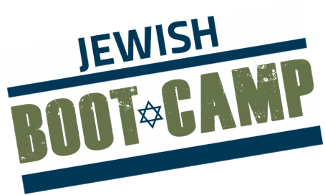A set of crash courses that provide a basic introduction to Jewish thought, history and traditions.
These courses are for you if you:
- Identify as Jewish but do not have a good understanding of what that means
- Are exploring conversion
- Are in an interfaith relationship
- Are simply interested in learning more about Judaism
All are welcome!
This course provides a concise, but comprehensive look at the traditions that mark the Jewish calendar. It offers an overview of all major Jewish holidays, their meaning, how they developed and the variety of ways they are celebrated today.
No longer a sovereign nation in their own land, the Middle Ages brought dramatic changes for the Jews as they scattered across the globe through migration, trade and expulsions. This course offers an overview of Jewish life during this era, focusing on the ways Jews preserved their religion, while also responding creatively to living in the realms of Christendom and Islam.
This course surveys a broad sweep of Jewish history, beginning with a look at the Biblical Era and the emergence of Israeli life and culture in its ancient Near Eastern context, from the early Biblical narrative to the dawn of the modern era. Critical questions are addressed: How and why did Judaism manage to survive through so many challenges? What sorts of encounters helped to shape the long and varied story of Judaism and the Jewish people?
Jewish spiritual expression has evolved through history from priestly animal sacrifices to standardized poetic passages. This course provides an overview of the development of Jewish prayer, as well as its philosophical and meditative intentions to express gratitude, supplication and connection to the Divine. We will also examine the choreography, meaning and common customs of contemporary prayer.
This course examines Judaism's core values and beliefs set forth in the Torah (Bible) and by the ancient rabbis. The class will explore how those ideas developed and continue to have relevance today. Topics include: in the image of god, respect and kindness in a community, repairing the world, and the unity of the Jewish people. Join in discussions of how these values offer multiple approaches for living a modern, ethical life.
This course provides an overview of Judaism’s foundational texts. What exactly are the Bible, Mishna, Talmud and other key writings? Who is thought to have written them? When did they appear? And how do they fit together? Participants will be provided with a broad-angle view of the development of Jewish sacred writings over the course of history and will explore a lively selection of narrative, law, poetry, and commentary.
This course explores contemporary Judaism with an eye toward dynamic and pressing issues, including the changing roles of rabbis, the blurring of denominational lines, shifting views about how to define Jewish identity, struggles to reimagine the Jewish family in light of new norms related to sexual and gender identity, and the charged nature of American Jewry's relationship to Israel.
This course provides an overview of what Judaism has to say about food and about eating. What exactly does "kosher" mean? Is there anything ethical (or not) about eating kosher food? (And what is gefilte fish anyway?) In addition to the religious rules, we will address the relationship between Jewish holidays and eating. Which holidays are connected to particular or elaborate eating, and which to refraining from eating? Finally, we will discuss a variety of Jewish cuisines from across the globe.


